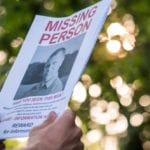 Movies and TV
Movies and TV  Movies and TV
Movies and TV  Health
Health 10 Miraculous Advances Toward Curing Incurable Diseases
 Miscellaneous
Miscellaneous 10 Undeniable Signs That People’s Views of Mushrooms Are Changing
 Animals
Animals 10 Strange Attempts to Smuggle Animals
 Travel
Travel 10 Natural Rock Formations That Will Make You Do a Double Take
 Movies and TV
Movies and TV 10 Actors Hidden in Your Favorite Movies
 Our World
Our World 10 Science Facts That Will Change How You Look at the World
 Pop Culture
Pop Culture 10 Incredible Female Comic Book Artists
 Crime
Crime 10 Terrifying Serial Killers from Centuries Ago
 Technology
Technology 10 Hilariously Over-Engineered Solutions to Simple Problems
 Movies and TV
Movies and TV 10 Movie Adaptions That Brought Popular Songs to Life
 Health
Health 10 Miraculous Advances Toward Curing Incurable Diseases
 Miscellaneous
Miscellaneous 10 Undeniable Signs That People’s Views of Mushrooms Are Changing
Who's Behind Listverse?

Jamie Frater
Head Editor
Jamie founded Listverse due to an insatiable desire to share fascinating, obscure, and bizarre facts. He has been a guest speaker on numerous national radio and television stations and is a five time published author.
More About Us Animals
Animals 10 Strange Attempts to Smuggle Animals
 Travel
Travel 10 Natural Rock Formations That Will Make You Do a Double Take
 Movies and TV
Movies and TV 10 Actors Hidden in Your Favorite Movies
 Our World
Our World 10 Science Facts That Will Change How You Look at the World
 Pop Culture
Pop Culture 10 Incredible Female Comic Book Artists
 Crime
Crime 10 Terrifying Serial Killers from Centuries Ago
 Technology
Technology 10 Hilariously Over-Engineered Solutions to Simple Problems
10 Cold Cases of Missing People in National Parks
The National Park Service in the United States preserves untouched natural beauty. The Grand Canyon, for example, is considered one of the Modern Natural Wonders of the World. Waterfalls, geysers, rushing rivers, and still lakes, along with the plentiful wildlife and serenity of nature, are just some of the breathtaking attractions of these paths. There is another feature to these parks, however, and that is danger.
The obvious dangers include those rushing rivers and waterfalls leading to drownings, those steep drop-offs leading to injury and loss of life, and those endless trails leaving people lost in remote, confusing, and sometimes dangerous terrain. In the majority of cases, people are found, but unfortunately, in some cases, only the remains are found. In other cases, the only thing found is a mystery. There are currently 24 cold cases of missing persons listed by the National Park Services Investigative Services Branch. These are some of their stories.
Related: 10 Historical Figures Who Disappeared And Have Never Been Found
10 Morgan Heimer
There is an obvious connection between the sometimes rugged and difficult terrain of National Parks and missing persons and deaths that occur there. Many people enter the parks inexperienced or unprepared. However, in the disappearance of Morgan Heimer, this was not the case. In fact, Heiman was an employee of Tour West, a rafting company on the Colorado River.
Heiman was regarded as an outstanding swimmer and experienced trekker. He was a strong and fit 22-year-old. On the sixth day of an eight-day excursion, Heimer was last in line bringing the rafters back from a swim. The lead tour guide recalled walking away from the cliff they were standing on to talk to a member of the excursion group. When he went back to Heimer, he was simply gone.
The guide mentioned that Heimer wanted to take a break, so no one was particularly concerned at the time. Not only that, but they were confident in his skills, and he was wearing a life jacket and familiar with the terrain. When he didn’t come back to the group for dinner, authorities were called. This launched a six-day search. His disappearance occurred on June 2, 2015. No one has seen Morgan Heimer since.[1]
9 Drake Kramer
Another experienced outdoorsman who enjoyed the Grand Canyon was a 21-year-old college student, David Kramer. His love of nature and exploring areas like the Grand Canyon motivated him to major in Geology at the University of Texas. His decision to visit the canyon wouldn’t be surprising to his family or friends. The circumstances for this trip, however, were slightly more unexpected.
Kramer, without any warning, chose to take off to California and, from there, the Grand Canyon. He arrived at the Bright Angel Lodge in Arizona on February 1st. Although Kramer had been there a few times before, it was unlike him to travel alone. His parents had seen him just before on January 29th and said he was in good spirits; they even attended a movie together. Even more jarring was a message Kramer sent to his mother, seemingly explaining the reason for his trip. He told his mother that he “needed to be back with Mother Earth and set his soul free.”
Because of this message, authorities counted suicide as a high probability after he left his car at the lodge and traveled along the South Rim of the Grand Canyon on his own. His family, in great hopefulness, saw the message as David needing to spend time in nature and do a bit of soul searching. The terrain of the South Rim is very mixed, so it can be difficult to traverse, but it is very rare that no sign of him or his remains would be found in that area. Despite this, neither Kramer’s body nor any clues about what happened to him have ever been found.[2]
8 Ruthanne Ruppert
Ruthanne Ruppert left her home in Florida to vacation in Yosemite National Park in August of 2000. The trip was not an unusual one for Ruppert. She was an extremely experienced climber and often traveled to reach new heights. One of her favorite experiences to share was that she had climbed Mount Kilimanjaro and did so with a frozen foot! As other people fretted over Y2K, Ruppert went to the Argentine Peak in Colorado to ring in the new year.
The trip to Yosemite should’ve been a piece of cake for such an experienced climber. Ruppert had planned to be a member of a backpacking group traveling 30 miles across the park. She was devastated when she woke up with an eye infection that caused her to miss the group while receiving medical care. Although she was upset, she still needed to figure out how to spend the rest of her trip. She rented a tent cabin in Curry Village and went shopping. After this, Ruppert seemed to simply vanish.
Her stock of supplies was left behind, not something an experienced hiker would forget. Her family is certain she would not have left them and had no intentions to harm herself. It seems missing that trip was the biggest issue in Ruthanne’s life and certainly wasn’t something she would go to extremes over. After a search and rescue operation, nothing could be found of Ruppert.
Oddly enough, eight years later, Ruppert’s backpack was found in Fireplace Creek, stuck in a drainage area. Fireplace Creek is almost eight miles away from Curry Village. How Ruppert’s backpack ended up there, along with her whereabouts, remains a mystery.[3]
7 Stacy Ann Arras
Stacy Ann Arras was only 14 years old when she went on a guided tour at Yosemite National Park. The trip was attended by her father and six others, all riding mules. The area has several campsites, all within a mile or two of each other. Stacy’s group was at the furthest set of cabins, Sunrise High Sierra Camp. After settling in, Stacy wanted to go to a nearby lake to take pictures and asked her father to join her. He chose to rest instead, so an elderly gentleman, Gerald Stuart, from the tour group went along with her.
Stuart was 77 and, along the way, decided to stop to rest as well. The group could see Stacy and Stuart along the path as they were downhill from the cabins. They saw Stuart stop and sit on a rock as Stacy continued, and shortly after, he walked back up to the cabins from the place he had sat down. He asked other campers who came from Stacy’s direction if they had seen her, but no one had. When the group realized Stacy was not along the trail, at the lake, or back with them, they began searching for her.
A massive search party began the next day. They went over and beyond any of the searches mentioned so far. They had three helicopters, two dog search and rescue teams, and close to one hundred people searching the park. Despite the immediate and immense response to Stacy’s disappearance, the only trace of her that has ever been located was her camera lens cap. If she was harmed, the perpetrator was incredibly careful as not so much as a drop of blood was found.
It is unlikely that a 14-year-old at the farthest part of a mountain would have simply walked off on her own, never to be seen again. If she was injured along the trail, certainly one of the many people in the area at the time or in the search parties would’ve found her or something of hers. Another vanishing act in Yosemite National Park.[4]
6 George Penca
As seen with Stacy Ann, there is not always safety in numbers. As an avid churchgoer, when George Penca decided to visit Yosemite National Park, he did so with 80 other followers from his congregation. Penca was not an experienced hiker but was in a well-traveled area with his friends and tour guides. It should have been a good experience for all involved.
However, at some point, Penca was separated from his group. It has been said that he had not felt well and decided to turn back, but others said the group split into two, and somehow during that separation, Penca was lost in the jumble. The last time that anyone recalls seeing Penca was at 2:40 in the afternoon. As the rest of the group expected to meet Penca back at their campsite, he was not reported missing until 9:00 that night.
The Upper Yosemite Falls they were hiking is a strenuous hike, rated difficult by the Park itself as a difficult trail for visitors. It is also rated high on the “crowd factor,” meaning plenty of people use this trail. No one outside of the church group remembers seeing him along the trail. He was carrying a bag with water and a bit of food. Neither the bag nor any of its contents were ever found. None of his clothing, his blood, or any trace of his body was ever found. In a heavily populated area, visible to the town of Yosemite itself, in nice weather, with a trusted group of churchgoers, George Penca disappeared in Yosemite National Park.[5]
5 Thelma Pauline “Polly” Melton
Polly Melton was not someone you would expect to be an avid hiker. Although out of shape and a heavy smoker, she still loved the mountains, hiked regularly, and made the base of the Smoky Mountains in North Carolina her summertime home. She had spent years visiting this location. And she was well known in the mountain town community, even volunteering almost daily at a senior home in town.
Melton went on a trail marked “Easy” in September of 1981. She was with two friends, and it should have been a leisurely walk for the experienced Melton. According to the two women she was hiking with, she sped up ahead of them. It wasn’t a far distance, but she went up over a knoll out of sight. When the two women she had been walking with only moments prior got over the hill, Melton had completely vanished. They heard no strange noises indicating distress, saw no sign of scuffle. They continued to the campsite, and still, no Polly.
Melton didn’t have any belongings with her, not even a change of clothes or her purse. She was also on medications for high blood pressure and nausea, and she didn’t have these with her either. There was just no trace of her until over a year later when a check in her name was cashed in Alabama. Police failed to say without a doubt that it was her signature.
There is a popular theory that Melton had decided to run off that day. Her husband, the third and last presumably, had fallen ill, her mother had recently passed, and her pastor speculated she was having an affair. The day before she went missing, she was volunteering at the senior home like usual; however, she asked to use their phone for the first time in the four years she had worked there.
Did Melton meet her lover in the woods, run off with no personal possessions or identification, and leave the Mountains that she loved so dearly, along with her husband and friends? For a woman that is said to have smoked two packs of Pall Malls a day and described as “too large to be kidnapped,” she must’ve been swift on her feet that day. Even though she would now be in her 90s, with no evidence to say otherwise, the National Park Service keeps her missing person case open year after year.[6]
4 Michael Ficery
Michael Ficery was “an off-the-grid kind of guy” even when he was young. He spent his youth and into his adulthood surfing, cycling, and especially hiking. His family also said that he had the memory of an elephant. This would be very helpful in navigating the sheer amount of trails that the Yosemite National Park has to offer. Even for incredibly experienced people like Ficery, the National Park Service does not ever recommend hiking alone. Ficery, nonetheless, began a solo hike on the morning of June 15th, 2005.
Not only would he be backpacking alone, but he was also doing so in one of the less-traveled areas of Yosemite, the Hetch Hetchy Reservoir. His plan was to begin there and head toward Lake Vernon. At some point, his plans changed a bit, and he chose to take the Pacific Crest Trail toward TilTill Mountain. The Pacific Crest Trail here is not steep like the other parts of Yosemite but rather gradually rises and falls. However, the area can be rocky, so there is the danger of getting injured or waylaid.
Getting hurt on tough terrain was something Ficery had been through before, having cracked an ankle at Yellowstone, having to crawl all the way out of the wilderness. So, when the outdoorsman failed to return from his adventure after his permit expired and his family expected him home, they feared the worst. The search for Ficery was so massive the United States Marines were involved. Unlike some others on this list, they did find something that belonged to Ficery: his bag. It contained his map, water, and camera. His friends and family were even more concerned at this point because they believed that Ficery would never willingly leave his bag at any time during a hike.
Unfortunately, in the 16 years that have passed, not another trace of Ficery has been found. Also, unlike others on this list, Ficery had not experienced any recent tragedies or shown signs that he was a danger to himself at all. His sister joined a company called Pack six years later, which puts together essential packs for explorers, and put out a statement regarding her brother. She believed he was unprepared for his trek, dangerously went out alone, and spoke of the dangers of changing your itinerary, as it makes it harder for search and rescue teams to follow the trail. However, if he had sustained an injury or passed, why is there still no other trace of him?[7]
3 Floyd Roberts III
The first time Floyd Roberts visited the Grand Canyon was in 1992 when a friend of his, Ned Bryant, suggested they make the trip together. Roberts enjoyed it so much he became Bryant’s regular hiking companion. They went several times over the years, and in June of 2016, they went again, bringing along Bryant’s daughter. Both Bryant and Roberts at this time were considered experienced hikers and were well prepared.
On June 17th, the three of them were headed along a trail when they decided to take different paths, the Bryants over the hill before the trailhead and Roberts around it. Roberts did not meet them on the other side. After waiting to see if he simply needed to catch up with them, the father and daughter began to worry and went back the way that Roberts took around the hill. Still no sign of him. They then went back to their camp and put bright-colored sleeping bags on nearby trees to provide a sort of flag to help Roberts find them.
The Bryants had good reason to believe that Roberts would be fine. He was an intelligent man; he even worked for NASA before teaching game design and programming for high school students. He was also well prepared. Robert’s bag had enough food to last him a week, and he carried two gallons of water with him, as well as a map outlined by Bryant with all of their trail plans. Unfortunately, Roberts never returned to camp, and the Bryants had to hike to find cell service to report his friend missing.
A canine team was brought in immediately but provided no answers. After six days and a massive search, the officials were forced to reduce the search power. Kelly Tanks, the area they were exploring, is one of the more remote sections of the park, and the heat that day presented problems, with temperatures reaching around 92 degrees.
Five years and countless hikers in the area have passed through, yet nothing at all can be found of this man. This was a man who had been in the area before, with resources to help him find help and survive, and a good friend with him. Why did he choose to go off alone? What happened on the side of the hill that the other two couldn’t have heard him if he needed help? How, once again, is there not a single footprint, a scrap of fabric, or remains of any sort to be found?[8]
2 Paul Braxton Fugate
Park Rangers are standard in the National Park Service. They are who you contact when someone is hurt or lost. Paul Braxton Fugate was a Park Ranger at Chiricahua National Monument, a National Park in Arizona. So it was shocking when Fugate disappeared at the park himself. Fugate finished his shift at the visitor center around 2:00 pm and went for a hike. He was still dressed in his uniform as he went out to check a trail. He mentioned to one coworker that they could start closing duties without him if he wasn’t back by 4:30. He was then seen starting down the trailhead.
That was the last any person spoke to him or saw him.
His disappearance was immediately realized when he did not return to close the park. He was the only permanent staff member at the park and would not have left the other seasonal employee to finish that job. Unfortunately, Fugate would’ve been the natural expert in a search and rescue mission at the park. But the Cochise County Sherrif’s Department and the National Park Service had to work without him.
To make things more difficult, Chiricahua has 17 square miles of canyons, treacherous terrain, and wildlands. The search and rescue teams found absolutely nothing related to the Park Ranger. When this effort failed, a reward for information that led to Fugate’s whereabouts—that eventually reached $60,000—was offered to the public. This disappearance took place in January of 1980. It has been 41 years since Fugate disappeared at the age of 41. The NPS had him listed as missing but told his wife that they believed he walked off the job and therefore was terminated.
This left Fugate’s wife, Dody, unable to collect his pension or any survivor’s benefits. They even demanded she repay the $6,000+ that they had paid her over the time he had been missing. Fortunately, in 1986, five years later, the case was reviewed again, and Dody did have access to his benefits after that time. While this means the National Park Service agreed there was no reason to believe Frugate was still living, the search for him is still ongoing.[9]
1 Teresa “Trenny” Gibson
On October 8, 1976, a sixteen-year-old high school student, Teresa “Trenny” Gibson, left Knoxville with her classmates and teachers to explore the Great Smoky Mountains National Park. Specifically, they were planning on going to Clingman’s Dome, where a stunning view of the mountains can be seen from a 45-foot tall observation tower. Gibson appeared to be enjoying the trip, walking along with her friends.
Along one of the trails, she walked with two other girls who said they slowed down a bit to rest. Gibson carried on a little ahead of them, but this trail was being used by dozens of groups that day. There were people before and after her on the trail the entire time they were hiking. The general consensus from the group was an expression heard over and over again—one minute she was there, and the next minute she was gone.
The trail that they were on at the time of her disappearance is relatively steep, with some major drop-offs along one side. Gibson’s group alone was 40 students, plus teachers. If she had fallen down one of the drop-offs, she would have had to do so silently for no one around to hear her. Likewise, if someone abducted her, they would have also had to be incredibly quiet and either incredibly quick or invisible for no one to have seen anything.
Even if she had wanted to run away and thought this was a great opportunity, she did so with no identification or the savings she had been collecting. The search for her was made difficult by rain and fog the night that she was reported missing. A slew of volunteers came to the park to help look for Gibson. Several dog units were also brought in to help find any trace of her. Interestingly one of the dogs found a trace that went past the Dome, about a mile and a half further than she was last seen around Newfound Gap. However, the trail went cold then. Gibson, like the rest of the National Park Services’ missing cold cases, simply vanished.[10]



![10 Abandoned Amusement Parks With Horrific Histories [Disturbing] 10 Abandoned Amusement Parks With Horrific Histories [Disturbing]](https://listverse.com/wp-content/uploads/2019/09/gulliver-150x150.jpeg)




